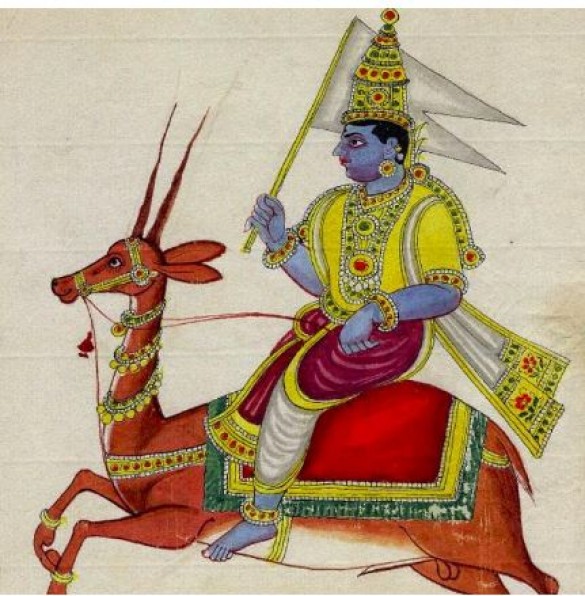
Vayu deva is known as Maruta is Vedic and Hindu god of wind. Vayu Deva goes beyond his physical representation as wind and air. His divine attributes hold deep philosophical and spiritual meanings. As the wind sweeps across the landscape, bringing life-nourishing rains and promoting the growth of crops, Vayu symbolizes the cyclical nature of life, death, and rebirth. This cyclical aspect is also seen in the concept of reincarnation and the eternal cycle of birth and death that characterizes the Hindu belief in samsara.
Vayu's association with Prana underscores the fundamental interconnectedness of all living beings. The breath that sustains every creature connects them to the divine cosmic energy, emphasizing the unity and oneness of all existence. This interconnectedness is a core tenet of Hindu philosophy and forms the basis for the practice of yoga and meditation, where practitioners seek to harmonize their individual Prana with the universal life force.
Also Read: Surya Dev: Sun God
Vayu Deva's presence in the Vedic pantheon had a profound impact on ancient Indian culture. The worship of Vayu and other Vedic deities played a central role in the daily lives of people, shaping their rituals, festivals, and worldview. Rituals such as the "Yajna" (fire sacrifices) were performed to honor the gods and seek their blessings, and Vayu was invoked to bestow favorable winds and weather conditions for a successful harvest.
Furthermore, the reverence for Vayu Deva found expression in the construction of temples and sacred spaces dedicated to him. These temples, known as "Vayu Mandirs," served as places of spiritual contemplation and community gathering. Pilgrims would visit these temples seeking divine blessings and healing, especially related to respiratory and breathing ailments.
Vayu's role as a guardian and messenger of the gods earned him a place in various mythological stories and epics. He is often portrayed as a loyal and devoted servant, helping the gods in their endeavors and acting as a mediator between different deities.
Also Read: Agni Dev: God of Fire
Vayu Deva, the Vedic God of Wind and Life Force, holds a significant place in the ancient Indian pantheon. As the personification of wind and the life-sustaining energy, Vayu's symbolism goes far beyond the physical elements he represents. He embodies the interconnectedness of all living beings, the cyclical nature of life, and the cosmic unity that underpins Hindu philosophy.
The worship of Vayu Deva and the other Vedic gods shaped the religious and cultural practices of ancient India, leaving an indelible mark on its civilization. Today, Vayu continues to be revered in modern Hinduism and remains an emblem of the eternal life force that flows through all creation. Understanding Vayu's significance enriches our appreciation of ancient Vedic thought and its enduring impact on Indian spirituality.
Also Read: Matangeshwar Temple: Houses The Lingam